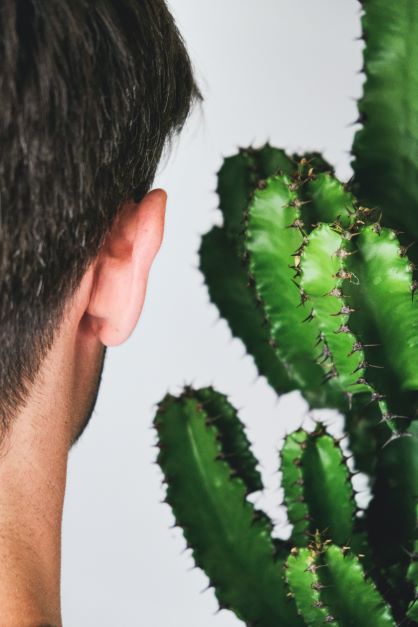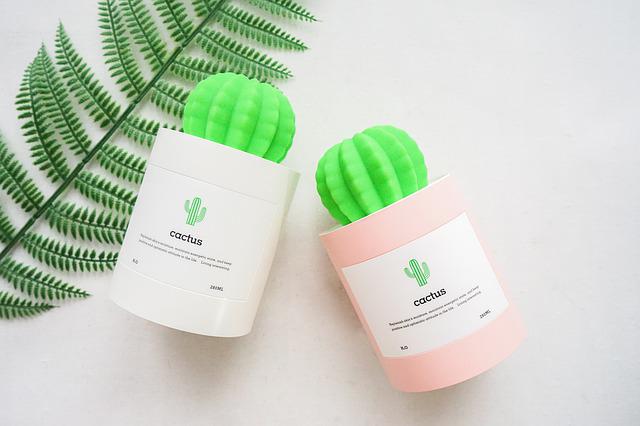
Everyone has had or dealt with dry skin at some point in their lives. It can be caused by the environment, allergens, lifestyle decisions, and many other varying factors and can be quite a nuisance to deal with, even painful. Similarly, the same can be said for dry ears.
Similar to how skin produces oil to keep moisturized, the ear naturally produces ear wax to keep your ears from drying out. Many people see ear wax as unhygienic, but the reality is we need ear wax to maintain a healthy moisturized ear. An overabundance and build-up of ear wax can be problematic, but in some cases, not enough ear wax can lead to dry ears
Similar to dry skin, dry ears are more common than people think and can turn into a real nuisance if left untreated. Let’s explore some basic information about dry ears, the long-term effects, causes, and treatments!
Long-term Effects of Dry Ears
For the most part, having dry ears is something that can be dealt with easily and is quite common. Dry ears are usually not a condition that persists, however, there are many conditions and causes for chronically dry ears that are more common than you think.
If left untreated, chronically dry ears can lead to crust build-up, infections, oozing fluid/blood/pus, itchiness, redness, irritation, and can even impede your ability to use earphones, hearing aids, hearing enhancers, and even glasses! Overall, it can quite uncomfortable, painful, and, in rare cases, dangerous. For these reasons, it is important to know the possible causes of your ear dryness and the possible treatments/options you have to combat it.
Dry Ear Causes
Skin Conditions
One of the more common reasons for dry ears is existing skin conditions. Chances are if you have a skin condition, your ears may be an area that’s affected by it. Here are some of the most common skin conditions that can cause dry ears:
- Psoriasis: An autoimmune condition that causes skin cells to grow at a faster rate than can be shed; This causes dry scaly red patches often found around the outer ear, neck, and scalp.
- Eczema: A common skin condition that causes red, scaly, and itchy patches; The skin is dry and can worsen in dry weather, exacerbating the condition. Typically occurs around/behind your ear, as well as inside the ear canal. This can lead to discharge and crust build-up.
- Seborrheic Dermatitis: A skin condition that typically affects oily areas of the skin; It will typically occur behind the ears with yellow and white flaky patches of skin. There is still much unknown about what makes this condition occur.
Dehydration
Staying hydrated is important for your health in general! Staying hydrated can prevent your skin from drying out. Especially in dry weather seasons such as Winter, you might find certain parts of your body dry that normally aren’t, ears included. Make sure to drink plenty of water!
Weather
Speaking of Winter, seasons and the general weather can be enough to dry out your ears! Having a moisturizer for certain seasons that naturally dry your skin can go a long way for overall skin health. Weather is also a factor that can induce certain skin conditions or make them worse like Eczema. Cold winds, dry air, and dry heat are all examples of weather that can directly dry out your ears; you can also be sure to add sun exposure to that list of weather conditions to be wary of.
Temperature
Another typical source of dry ears is often temperature. Even if you are aware heat dries out your skin, you might not be aware of just how much you are exposing yourself to drying heat on a daily basis! Having your heater too high or for too long and taking hot showers are also ways that high temperatures can cause your ears to dry. Alternatively, locations that are too cold, have constantly blowing winds, or experience sudden changes in temperature from hot to cold or vice versa can also be the cause of a dried-out ear.
Smoking
Nicotine is known to impair blood flow by narrowing your blood vessels. This causes oxygen flow to be poor causing your skin, in general, to dry out. If your ears are a particularly dry area for you already, smoking may worsen your condition.
Stress
Stress is just one of those things that can sometimes cause your body to react strangely. Unfortunately, dry mouth, dry skin, and dry ears are all physical reactions one can have to stress. If you are someone who experiences skin or ear dryness when stressed, finding a way to relax and destress (easier said than done, I know!) is essential to prevent recurring or long-term episodes.
Allergens
Whether they are cosmetic, hygienic, or dietary allergens, allergic reactions are an all too common cause of dry ears. Sometimes the cause of your ear dryness is your favorite shampoo or cologne/perfume. It can even be a lotion/cream you are using. Certain fabrics and metals such as nickel, copper, and cobalt in earrings can cause a reaction. If you notice your dry ear comes suddenly from nowhere and reoccurs for a consistent amount of time, it could be allergy-induced. If you think that is the case, try to take note of what kind of materials or substances you might have ingested, touched, or used when it started!
Treatments

In order to treat your dry ears effectively, identifying the cause is key! However, finding the catalyst can take time and resources through trial and error. Here are some treatments that can be effective:
- Ointments, Creams, and Eardrops: often used for treating skin conditions such as Psoriasis and Eczema. They combine oil and anti-inflammatory steroids to reduce itching and help restore moisture. Over-the-counter brands are available for purchase in most pharmacies. Hydrocortisone creams and ointments are the most widely used treatments.
- Lotions: can be used for a cool breezy moisturizing effect, however, because they are water and crystal-based, they need to be applied often. Additionally, they don’t work as well for long-term treatment compared to their oil-based counterparts and are suited more as a preventative than treatment.
- Humidifiers: If the source of your ear dryness is the dry air itself, a humidifier is a great solution. Alternatively, filling a glass, cup, or bucket with water and keeping it in your room is a makeshift-free and immediate solution! Of course, a humidifier would be most effective.
- Avoiding Allergens: as mentioned in the section before, taking note if your ear dryness is caused by an allergic reaction is essential for treatment. Discovering and avoiding those substances can be the long-term relief answer you’ve been searching for! Hygiene and cosmetic products are the most likely place you’ll find allergens, but don’t forget to check any earrings or jewelry you wear as well!
Resources:








